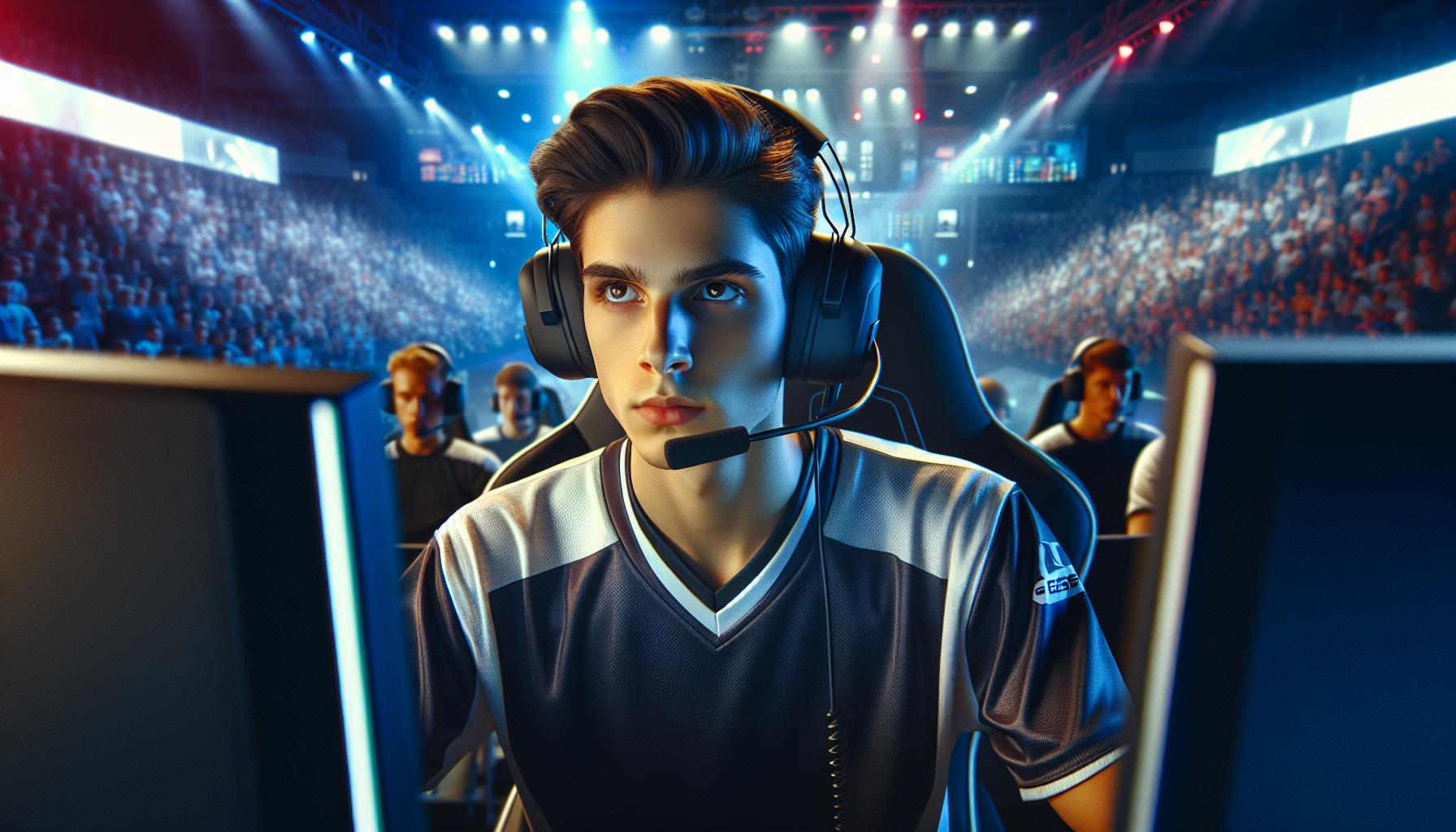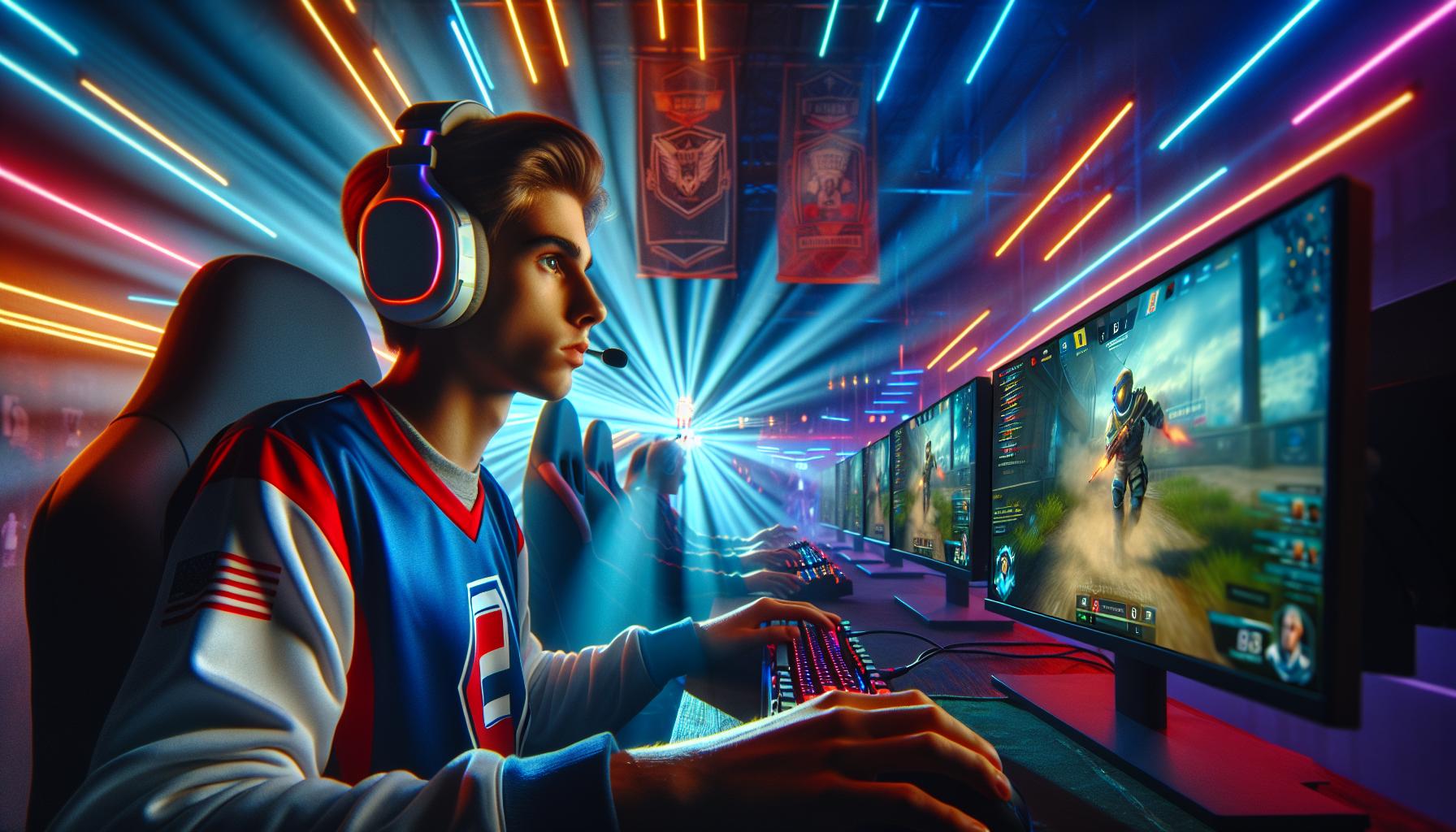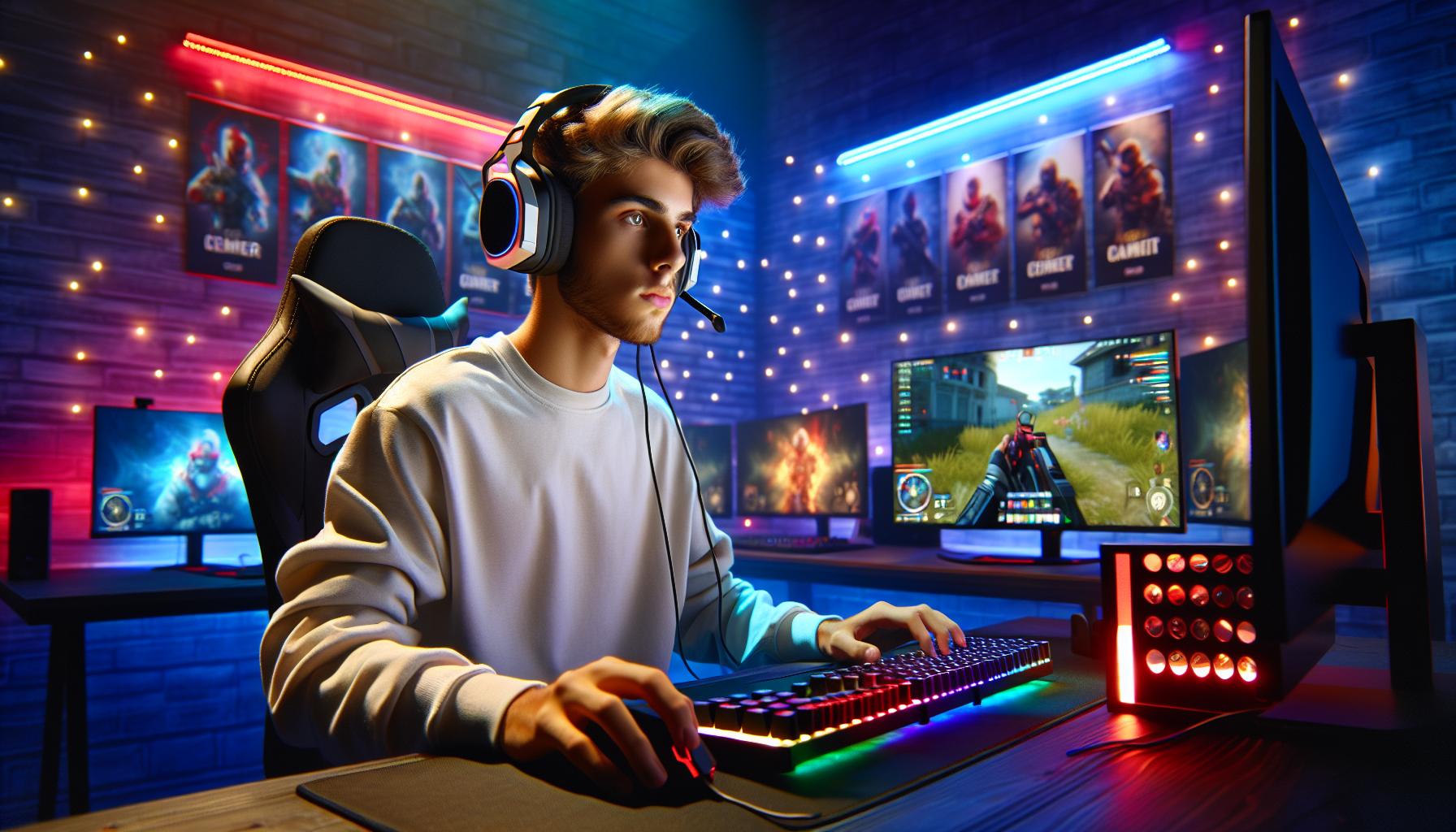
Esports gaming isn’t just a pastime; it’s a phenomenon that’s taken the world by storm. Whether you’re a casual player or a keyboard warrior, the allure of competing at a professional level is hard to resist. Imagine the thrill of battling it out in front of thousands of fans while raking in some serious cash. Sounds like a dream, right? Well, it’s time to turn that dream into reality!
Understanding Esports Gaming
Esports gaming has rapidly evolved into a significant segment of the entertainment industry. It combines competition, skill, and community engagement on a global scale.
What Is Esports?
Esports refers to competitive video gaming where players or teams compete against each other in a structured environment. Players often engage in games like League of Legends, Dota 2, and Counter-Strike: Global Offensive. Events take place in front of live audiences, and many viewers tune in online, creating a vibrant ecosystem. Organizations sponsor teams, and players receive rankings based on skill and performance. Viewers enjoy watching their favorite players and teams compete for supremacy, making esports a community-driven experience.
The Growth of the Esports Industry
The esports industry has experienced significant growth in recent years. In 2021, it generated approximately $1.08 billion in revenue, driven by sponsorships, advertising, and media rights. Viewer numbers have surpassed 500 million globally, reflecting the increasing interest in competitive gaming. Major tournaments offer multi-million dollar prize pools, attracting top talent and viewers alike. Infrastructure investments, including dedicated arenas and online platforms, enhance the overall experience for fans and players. This growth signifies a shift in perception, solidifying esports as a legitimate and influential segment within the sports industry.
How to Get into Esports Gaming

Aspiring esports players must develop a diverse skill set to excel in competitive gaming. Prioritizing specific abilities significantly enhances their chances of success.
Gaming Skills and Strategies
Mastering gaming skills requires dedication and practice. Players should focus on mechanics, which include aiming, movement, and reflexes. Strategic thinking plays a crucial role in decision-making during matches. An in-depth understanding of game mechanics often sets top competitors apart. Players improve their gameplay by analyzing opponents’ tactics and adapting strategies accordingly. Many top esports athletes emphasize the value of continual learning and practice.
Communication and Teamwork
Effective communication strengthens team dynamics in esports. Players must convey strategies clearly and coordinate efforts with teammates. Listening actively to team members during matches enhances response times and decision-making. Trust and collaboration create a solid foundation for successful teamwork. Regular practice sessions foster better synergy among players. Furthermore, respecting each other’s roles and contributions is vital for maintaining morale throughout a competition. Strong team cohesion often leads to improved performance in high-pressure situations.
Choosing the Right Game

Selecting the right game serves as a crucial step in an esports career. Players should consider games that align with their interests and skills.
Popular Esports Games
League of Legends, Dota 2, and Counter-Strike: Global Offensive remain among the most-played esports titles. Each game attracts diverse player bases and offers various competitive leagues. Fortnite and Valorant also gained significant traction, showcasing unique gameplay and attracting large audiences. These games host major tournaments, featuring millions in prize pools, increasing their appeal for aspiring gamers. Engaging with popular titles helps players understand game mechanics, strategies, and community dynamics.
Factors to Consider When Choosing a Game
Skill set forms a primary consideration when selecting a game. Players should evaluate their strengths and weaknesses in mechanics and decision-making. Community support greatly impacts the gaming experience. Being part of an active community enhances learning and offers networking opportunities. Time commitment plays a critical role as well; different games require varying amounts of practice. Performance under pressure proves essential, with some players thriving in high-stakes environments. Assessing personal interests enriches the experience and sustains motivation throughout the journey.
Building Your Presence

Building a presence in esports is essential for aspiring players. Establishing an online profile can significantly enhance visibility and connect with potential fans.
Creating an Online Profile
Creating a compelling online profile allows gamers to showcase their skills. Include game statistics, highlight reels, and personal achievements on platforms like Twitch and YouTube. Consistent posting of gameplay videos helps attract attention. Professional-looking graphics and engaging bios can create a strong first impression. Additionally, linking social media accounts creates a cohesive online identity. Followers appreciate updates, upcoming streams, or participation in tournaments. Engaging content encourages fans to share profiles, enhancing reach.
Engaging with the Community
Engaging with the esports community fosters connections and growth. Participating in forums or Discord servers dedicated to specific games allows players to share experiences. Attending local tournaments creates opportunities to meet fellow gamers. Connecting with other players can lead to valuable advice and collaborations. Joining online communities encourages discussions around strategies and upcoming events. Networking with established players and content creators opens doors for exposure. Active participation demonstrates dedication and fosters trust within the community.
Training and Practice Routines
Training and practice routines play a vital role in achieving success in esports gaming. Consistent practice forms the foundation for skill development and competitive readiness.
Developing a Training Schedule
Creating a training schedule requires balancing practice time and rest periods. Players should allocate hours each day, focusing on specific skills and game strategies. Goals should be clear, whether aiming to improve aiming precision or refining team strategies. Regularly assess progress to stay on track. Including break times prevents burnout, ensuring peak performance during practice sessions. By maintaining a disciplined schedule, players enhance their chances of excelling in competitions.
The Importance of Mental and Physical Health
Mental and physical health significantly impact gaming performance. Prioritizing physical fitness through exercise improves stamina and reflexes, essential for long gaming sessions. Incorporating practices such as meditation enhances focus and reduces stress, benefiting mental clarity during matches. A balanced diet supports energy levels, providing the necessary fuel for prolonged training hours. Furthermore, adequate sleep promotes recovery and cognitive function, aiding quick decision-making in high-pressure situations. Together, these elements foster a well-rounded approach to a successful gaming career.
Finding Competitions and Tournaments
Finding competitions and tournaments is vital for aspiring esports players. Various platforms and resources can help players discover these events.
Where to Look for Opportunities
Online platforms like ESL, Battlefy, and Challonge host numerous esports competitions. Social media groups often announce local tournaments, creating community engagement. Gaming forums provide valuable insights and leads on upcoming events. Additionally, many popular games feature in-game tournament systems that simplify participation. Following esports organizations and teams also uncovers information on amateur and professional events. Websites like Liquipedia compile comprehensive lists of tournaments, ensuring players stay updated.
What to Expect in Tournaments
Tournaments vary in structure and atmosphere. Participants can anticipate single or multi-day events, often hosting several matches each day. Expect intense competition, as skilled players come from diverse backgrounds. Prize pools can range from hundreds to millions of dollars, depending on the event’s scale and sponsorship. Players should also prepare for streaming and live audiences, which add pressure and excitement. Networking opportunities arise during tournaments, connecting players with coaches, sponsors, and fellow competitors. Overall, tournaments provide a unique experience combining competition and community engagement.
Take The Leap Into This Exhilarating World
Aspiring esports players have a vibrant path ahead of them. With dedication and the right strategies, they can carve out a niche in this dynamic industry. By honing their skills and engaging with the community, they can unlock opportunities that may lead to professional success.
The journey requires commitment to practice and a willingness to learn. Embracing competition through tournaments and networking can significantly enhance their experience and visibility. As esports continues to grow, so do the chances for those ready to take the leap into this exhilarating world. The stage is set for passionate gamers to make their mark.
